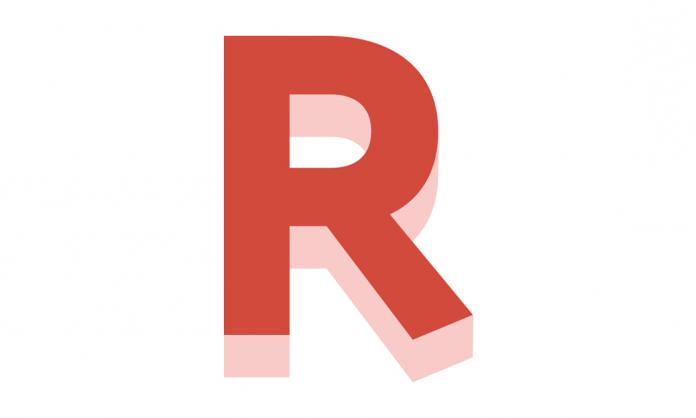Socialist Alternative is the largest revolutionary group in Australia since the 1920s. We are the only socialist group with a national presence and an expanding membership. Founded by a few dozen people based overwhelmingly in Melbourne in the mid-1990s, the organisation has grown to nearly 500 activists spread across the country. While this is nowhere near what we ultimately need, it’s an important achievement in a context where the broader left has disintegrated.
There is hardly a campaign in Australia that doesn’t involve our comrades in some way. We’re known for leading campaign groups against racism and fascism, for refugee rights, for climate justice and against education cuts.
While it isn’t easy to achieve victories in the neoliberal era, we’ve had a few big ones. We led the successful street movement for marriage equality and a militant student movement that defeated the Liberals’ attempt to impose $100,000 university degrees. In the last couple of years, we’ve led demonstrations of tens of thousands in response to the bushfire crisis of 2019, defended the right to protest during the pandemic and brought out big numbers in support of abortion rights in Melbourne this year.
While these campaigns have been popular, we’re also not afraid to take controversial positions when it’s right to do so. Following a major Israeli assault on Gaza in 2011, we initiated one of the largest boycott, divestment and sanctions (BDS) protest campaigns in the world at the time. The Greens had abandoned their earlier commitment to BDS under media pressure, and then Labor Prime Minister Kevin Rudd was campaigning aggressively in support of Israel. More than nineteen comrades were arrested as part of a campaign of civil disobedience, but we won in court and persevered on the streets.
While rebuilding trade unions is a longer-term project that doesn’t always have the same public profile, it is a vital task that can’t be shirked. The organising efforts of Socialist Alternative members in workplaces across the country have won them respect and recognition. Sometimes this has resulted from our leadership in strikes and other industrial campaigns. Recently, our comrades in the National Tertiary Education Union led a campaign that defeated a planned 15 percent wage cut for university workers.
But perhaps the most significant effort of recent times has been our campaign to get a socialist elected to parliament through the Victorian Socialists. This gargantuan effort has involved reaching out to well over a hundred thousand voters across Melbourne through doorknocks, public meetings, protest actions and more. If we win, it will be the first time in 100 years that a revolutionary socialist has been elected to an Australian parliament.
All of this has been possible only due to the steady growth in size and experience of our organisation. Without committed socialists working tirelessly to fight for both immediate goals and long-term transformation, Australia would be a more passive, more right-wing and less hopeful place.
Every person reading this article has a role to play in constructing a socialist movement that can make a difference to the world, right now. If we had a few hundred or a few thousand more members, the possibilities for action would multiply.
Having said that, the purpose of a socialist organisation is not just to fight the latest government attack or build a union presence at work. The point of a socialist group is to overthrow the system.
There’s some good news on that score too. According to researchers at the Center of Strategic and International Studies in the United States, the 21st century has witnessed more mass demonstrations and revolutionary events than any era of modern human history. Protests, strikes and even revolutions have swept the world, from Chile and Egypt to Hong Kong and the US. This wave of struggle peaked just before the pandemic in 2019, with sizeable protests around issues as varied as climate change, democratic rights and economic justice.
These movements are inspiring to observe and exhilarating to participate in. In them, the downtrodden and the unseen burst onto the historical stage, proclaiming a better world for all. Their energy and militancy awaken society to injustices and offer hope that another world is possible. Those who have participated in such events never forget the sense of communion forged by strangers united in solidarity and struggle—a tantalising glimpse of the power of humanity at its best. They confirm all the basic arguments of Marxist theory: that capitalism is a system of crisis, that workers will fight back and that their struggle contains within it the seeds of a better world.
Yet, for every episode of heroic revolutionary struggle, there is a story of tragic defeat. The crises that generate mass resistance—economic, social or political—do not last forever. The ruling class adjusts to the new situation and finds ways to respond through concessions, repression or both. If social movements and revolutions spring seemingly out of nowhere, they often recede just as fast.
The repeated failure of these movements results directly from the lack of strong and radical working-class institutions, most important of all being a mass revolutionary socialist party.
Our rulers have a thousand ways to shield themselves from the rage of the exploited and oppressed. These range from repressive laws and armed police all the way to progressive-seeming organisations that work to undermine our movements from within. Here we’re talking about NGOs, reformist politicians and treacherous union leaders, who are always eager to contain and diffuse popular anger.
Challenging these types of politics and organisations is crucial to building effective campaigns around all sorts of issues. Moderates often oppose the most minimal social and industrial activism for fear of alienating their friends in high places. The climate and refugee NGOs are the most typical examples of this trend, hibernating whenever Labor is in government. The same can be said of the public sector trade unions that have been criminally negligent in Victoria: they fear damaging Labor’s electoral fortunes far more than they fear the savage cuts being inflicted on their members.
The same battle of political ideas between radicals and moderates unfolds in revolutionary moments, but the stakes are much higher. Should people demand everything they need and want, or do they accept crumbs? Should workers self-organise and take disruptive action, or instead place their hopes in bureaucrats and politicians? A socialist party is vital to combat the latter: socialism will never win unless we can break the stranglehold that reformist politicians and union bureaucrats have over the workers’ movement.
This isn’t just about simply swapping out the old leaders for newer, younger ones, who could just as easily sell out as the current lot do. When revolutionaries talk about leadership, we are talking about a radical, democratic type of leadership in which hundreds of thousands of working-class militants are supported to be effective leaders in their workplaces and broader society. In times of mass struggle, this can happen somewhat organically. But even then, radical workers can at times act in isolation and at cross purposes from other militants. Being part of a network of revolutionaries across sectors and localities allows organisers to multiply their impact by coordinating their actions and taking on political questions that cannot be resolved in a single workplace or neighbourhood.
In the climactic moments of any revolution, a mass socialist party is necessary to popularise the arguments for workers’ power and smashing the police, the jails and the armies that defend the dictatorship of capital. Only then can workers begin reorganising society to meet human needs, which will include an end to oppression and exploitation and an overhaul of our abusive relationship with nature.
For now, we’re a long way away from the point where such questions are posed.
There are two big traps that socialists can fall into in moments when revolution is not on the immediate agenda. One is to lose sight of this long-term goal and reduce ourselves to the level of pragmatic reformists. The other is to daydream about a revolutionary future while doing nothing to bring it any closer. It’s easy to make the first error when engaged in a struggle around something immediate and urgent: this is the pressure “not to make the perfect the enemy of the good” that we hear so much about. There is also a temptation to make the other mistake, as demonstrated by the internet left, where seemingly ultra-radical anarchists and Stalinists exist in isolation from any real-world resistance.
A socialist organisation, even a relatively small one like Socialist Alternative, can help avoid these traps. It’s a group of people committed to organising resistance while also preparing politically and theoretically for the bigger challenges. The more people involved in such a group, the more likely it is that the skills, knowledge and political principles accumulated through generations of class and social struggle can be passed on and built upon in a way that can shape the future radical struggles. Ultimately, it will determine whether our side wins or loses.
That’s why the most important task of any socialist organisation is to grow. Only by building a mass socialist movement can we begin to have a real impact on working-class politics. Small groups of radicals can occasionally punch above their weight by going viral or by calling well-timed demonstrations that hit a nerve. But to organise a serious challenge to capitalism, we need socialist activists and organisers embedded in every workplace, university campus and social struggle.
For this reason, every serious revolutionary must be an aggressive recruiter, both to the ideas of socialism and to an organisation that can make those politics a real force in working-class life.
It’s easy to be pessimistic about our chances of ultimate success: we face the real prospects of economic meltdown, climate disasters, fascist governments and a new world war. But the only thing more enraging than capitalism is nihilism. Nobody can guarantee the final victory of the working class, but there’s no excuse not to be part of the only movement that has a decent shot at fixing the root causes of society’s problems once and for all.









